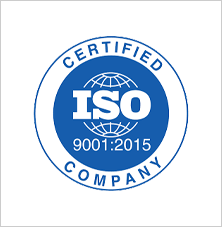Custom Web App Development Tips for Small Businesses

Every small or large business must be able to showcase their works online. For small companies, having just a website or a mobile application is no longer enough. But to be competitive, you might need a custom web application to grow and develop your business. Custom web application development helps automate work processes. Further, it brings a new level of collaboration and increases the efficiency of your company. What must you know to handle a successful web app development project? Let’s discuss some custom web app development tips for small businesses.
Why is Custom Web App Development Essential for Small Businesses?
Small businesses should look out for tools that help them be more efficient. Generic web apps and off-the-shelf software serve their purposes but have some limitations. On the other hand, custom web apps are tailor-made for your needs, allowing you to build and design the features you are looking for in your business.
With a custom solution, you can:
- Customize your web application’s features to match your processes and workflows.
- Increase client engagement through customizing user experiences.
- Automate tedious work to concentrate on what matters more.
- Get ahead of your competitors who go for the one-size-fits-all or off-the-shelf software.
Custom Web App Development Tips for Small Businesses
Define Your Goal
Firstly, clarify your purpose for the custom web app. Are you trying to enhance your customers’ current online shopping experience? Is there a more convenient method for monitoring stock levels, or is this a better solution for customer support? Having a structured goal, in any case, will always assist you in making choices throughout the development process.
Before you start with the app, analyze the problem you are trying to tackle with the mobile application. For example, Suppose your app’s purpose is to enhance customer support. In that case, you might require features like live chats and a ticketing system. If you want to streamline the business processes, the application can have features like collaboration tools, task lists, buzzer notifications, etc.
Thus a clear purpose helps plan the project phases and processes in each phase. Further, it ensures everyone involved in the development process works towards a common goal.
Define Your Budget
Web app development from scratch can be pretty costly, and it is very easy to overspend on unnecessary features or add-ons. Thus, it’s important to set achievable budgets for the project. The budget outlines the potential features of the web app, how complex they will be to make, and the level of development company you can hire. To determine your budget for custom web app development, consider factors like:
Time
Custom app development requires time, so estimate the time needed for your project and the cost.
Design
Successful apps need consistent, professional, user-focused designs. So don’t forget to keep a budget for creating designs and user interfaces.
Maintenance
Your app is not static and will need regular enhancements and upkeep so everything flows seamlessly after the launch phase.
Marketing
Set aside some amount for marketing your app once it has been launched because making your audience use it is as crucial as developing it.
A good and reasonable budget will help you not fall into the trap of overspending on the app while achieving the objectives of your app. Again, discuss your budget with your development team at the start.
Choose an Affordable Web App Development Company
Any startup should check two aspects while looking for a custom web application development company. The first is their experience delivering quality work. The second is their service price. They should have experience delivering high-quality custom web apps at an affordable price.
When choosing a development organization, pay attention to the following criteria:
- A company that has worked with small businesses before will understand you and your needs better.
- Go through their portfolio and case studies to determine their capability.
- You want a team that will be easily accessible and will communicate throughout the process.
- See if they have support even after the web app goes live so that small changes or bugs can be addressed quickly without any hassle.
Choose the Tech Stack for Your Small Business’ Custom Web App Development Project
The tech stack you choose will form the base for your web app. Considering the available languages, frameworks, and databases, picking the best will be challenging. A proper tech stack should be impact-driven and relevant to the objectives of the business and the budget and expansion needs of the application. Some common tech stacks for web apps created for small businesses consist of the following:
- React, Angular, or Vue.js are popular front-end technologies that make a great user interface.
- Backend technologies take care of all the functionalities that happen behind the curtains. For instance, Node.js, Ruby on Rails, and Django.
- You can use MySQL, PostgreSQL, and MongoDB for data storage and management.
- Amazon Web Services (AWS) and Microsoft Azure are used for cloud infrastructure.
Selecting the right tech stack guarantees that your objectives match the tools used, enabling you to avert issues later. Have your development team participate in the selection of technologies that will be able to meet the performance, scalability, and security aspects that your business needs.
Plan the Content to Support Your New Custom Web Application
Building a custom web application is just the starting point. Launching the application is critical since the app will need enough supporting content to sustain it, which will help in-app user engagement. Quality content retains users’ attention; even the best-conceived app might not gain popularity without it.
Suppose your app is for selling products through e-commerce. In that case, you will require blunt product details, pictures or images, and specification documents. For an app that offers a service, including reviews, success stories, and promotional articles that describe the advantages of your service will be helpful.
How valuable this content will be will also depend on how it is targeted; for example, Facebook, Instagram, or LinkedIn can be used to advertise the app and content. Use email marketing to contact your client base and tell them about your new app. You can even hold free webinars with live presentations to attract users and explain the application’s benefits.
Search engine optimization (SEO) is also required as part of the content. Therefore, your web application’s content needs phrases and keywords that potential users are expected to search for. SEO can help drive organic traffic to your site, thus increasing exposure and increasing the number of users.
Distribute Your Newly Built Custom Web Application and Gather User Feedback
The next most important part of the process after you are done with your custom web app development is its promotion and distribution. Creating an app is one thing; promoting and distributing the app to the target customers is challenging. You need proper marketing strategies to make more people download your app.
For your promotion, the best bet is to use social media platforms that your target audience actively uses. It may be done through paid advertising, influencer marketing, and organic posts that tell the unique story of your app. Or you could start with offers to promote your web application for usage, such as special offers or discounts for your first customers.
Lastly, let your existing clientele do the marketing for you through incentive marketing. Word of mouth is one of the best and most reliable marketing strategies for small companies because it establishes trust for users who have yet to use the app.
Make Sure to Keep Updating the Web App Based on User Feedback
People will give feedback; you should use them to update the app. You do not need to worry about how you will remember to keep updating your app, as there are several ways one can update an application over time:
Bug Fixes
Make it a habit to search for bugs or glitches that might be intrusive during application use; they can sometimes be irritating. If you receive feedback about someone experiencing a bug, fix it as quickly as possible to prevent such a user from being annoyed again.
New Features
Keep your eyes and ears open to learn what users seek. Add new features to your app to make your users happier and more engaged.
Performance Improvements
As time passes, the application might show performance issues due to increased users. Regular review and improvement of the app, especially its speed and operation.
Security Updates
How critical cybersecurity is does not need further explanation for any web application. Ensure your app is up to date and does not carry any security flaws that might put your business and your users at risk.
Updating the application not only enhances users’ satisfaction but also indicates to clients that you are working hard to present a quality product.
Conclusion
So here are some practical custom web app development tips for small businesses. Small companies can employ custom application development to increase operational outputs, enhance client solicitations, and improve their competitive edge in the market. Nevertheless, it is advisable to take the developmental procedure systematically. It involves understanding where you are currently and where you want to be, having preferred financial capabilities, and selecting suitable developers and technology.
Lastly, if the app is correctly launched, promoting it and improving it through user feedback will secure its relevance for both clients and the company in the future.
Frequently Asked Questions (FAQs)
How can small businesses plan a web app development budget?
Start by analyzing the features the app should have and how intricate those features should be. Consider the amount of time and effort required for design, testing, and maintenance after the app starts operating. If you intend to offshore the project, include the rate of the skilled developers working on your project. Also, consider the cost of other services such as advertisement and hosting. It may seem daunting, but trust me, it’s still manageable.
What is the average cost of a custom web app?
A simple custom app for a web application can range between $5,000 and $2,50,000 depending on the complexity level and the number of features.
How do I balance cost and quality when outsourcing developers?
Looking for cheap developers is an enticing option. But this almost always leads to poor-quality work output. You may end up with an app that does not meet your expectations. On the other hand, even the most expensive developers may not be of much use in your project.
You can find the right mix by looking for developers with a good history of creating niche web apps for smaller businesses. Look for a capable app development agency that offers competitive quotes and reasonable rates within your range.

















